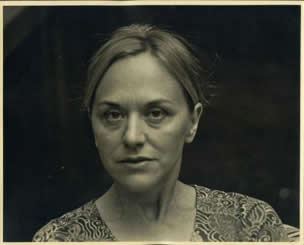

|

|
IN MEMORIAM
Danielle Kormos
Professor of French, Emerita
Berkeley
1937 — 2006
Danielle Kormos died of cancer on April 10, 2006. She had held off the disease with quiet determination for 10 years, enduring operations and other treatments patiently, continuing to teach until 2003, welcoming four granddaughters into the world and in her usual, high-spirited way engaging right up to the end with colleagues, friends and relations from here and abroad. Everyone who visited or spoke with her by phone during her last months was moved by the unfailing persistence of her generous, intelligent interest in the world and all its inhabitants.
Danielle Kormos was born in Tunis on August 3, 1937 and grew up in Tunisia. She was a brilliant student at the École Normale Supérieure in Paris, specializing in Italian literature and culture. The year she took the agrégation—the national competitive examination for advanced students in Letters who aspire to careers as teachers and scholars—she received the highest marks in all of France. She taught at Barnard College in New York before joining the Department of French at the University of California, Berkeley, as a lecturer in 1968.
For the next 35 years, until her retirement in 2003, she was an ideal colleague: friendly to all, witty, and just as modest as she was quick. Nothing was too abstruse or too ordinary to ignite her curiosity; the sheer breadth of her knowledge was extraordinary.
She regularly taught a crucial course in the department’s curriculum, an introduction—for students who have learned the rudiments of the French language—to the skills of literary analysis and critical writing. This course is a prerequisite to all other courses in the French major. Danielle Kormos made it a terrific experience for many students who went on to become the department’s best majors. She brought her deeply cultivated sensibility to the course, and her lively interest in American students during changing times, as well as her stern intellectual rigor. She invented various formats for the course over the years, sometimes favoring a broad survey of French literature since the Middle Ages, sometimes organizing the semester around the modern novel, or French historiography, or the question of Orientalism. Her students often conveyed their admiration for her vast knowledge, and their appreciation for her generous attention to their questions, problems and ideas. For her part, she went to her classroom at the beginning of each new semester confident that she would meet young people of a whole new type—students whose parents came from different continents, who spoke languages no one else knew, who had a new globalized sophistication. She threw in her lot with Americans, and resisted the criticisms that are easy to make from an Old World perspective.
Her cosmopolitan life made her a great liaison between the French department and the Education Abroad Program—a function she fulfilled gladly for many years. She also took particular pleasure in her work for the Division’s Committee on Undergraduate Scholarships and Honors as an interviewer each spring of Regents’ and Chancellors’ Fellowship candidates. This is quite a strenuous assignment which Danielle performed with verve because of her keen interest in young Americans, and her unusual perceptiveness in their regard.
No one else could have helped the department welcome distinguished visitors the way Danielle did: on the campus and at home, for tea, for champagne, with warmth and serious conversation but no special fanfare. In several cases she remained the main link the visitors kept with Berkeley for years and years after they left. Moreover, the gatherings that Danielle organized at her and Harry Kormos’s home on Arden Way in Berkeley on birthdays, holidays, or on the spur of the moment were always memorable occasions. People of all ages and many different walks of life, from all over the United States, Europe and North Africa met happily in different combinations and permutations. There was always plenty for them to learn from each other, plenty to ponder but also to laugh about, and quantities of beautifully prepared food. On the afternoon after her memorial service, many people who had often been her guests on Arden Way met there again, and in their midst her sociable, intelligent presence was unmistakable.
When she died she left behind a surprise: three trunks full of her own writing, much of it verse. She seems to have written every day, never speaking of this regular practice to anyone, but saving her texts in neat booklets which are just beginning to be opened and slowly explored by her family and friends. Tucked in between two pages is a letter from Maurice Nadeau, the well-known critic and publisher, expressing his interest in a sheaf of manuscripts she must have sent him sometime in 1968, and offering to publish one poem in particular. Danielle does not seem to have replied to this note—or, ever to have stopped writing.
She is survived by Harry Kormos, her husband; Rémy and Cyril Kormos, their two sons; Iskra and Rebecca, their daughters-in-law, and their daughters (two each); her mother, aunt, two sisters and two brothers, her nieces and nephews and many, many friends—all of whom together have arranged that a bench be placed in the University of California Botanical Garden in memory of Danielle, with a line of her poetry inscribed upon it.
Ann Smock
Esther Alder
Seda Chavdarian
Françoise Sorgen-Goldschmidt